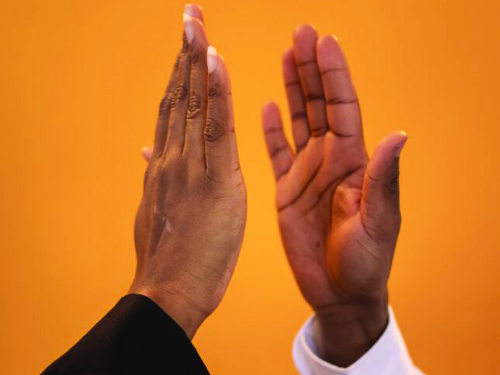
Disability History Month this year runs from the 16th of November until 15th December and the theme is “Disability, Health and Wellbeing. It is an annual event created to provide a platform to focus on the history of the fight for equality for disabled people and to celebrate their lives and to challenge disablism.
According to Scope, 9% of Children and 21% of working adults and 42% of pensioners in the UK are disabled. The Local Government Association (LGA) census of 2022 found that only 15.5% of elected Councillors were living with a disability or long-term health condition. This indicates that there is work that we could and should all be doing to make sure that more people with disabilities can play an active part in local democracy.
I have grown up with learning about disability and the societal barriers that prevent disabled people from living with the same freedoms as able bodied people. My mum was diagnosed with Multiple Sclerosis when I was young and has been a wheelchair user for some years. My Dad was diagnosed with cancer and although he is thankfully in remission it has left him with disabilities of his own which as a carer for my mum has its own challenges. I am also a neurodivergent person with an autistic child and I am a strong supporter of the social model of disability which recognises that people are disabled by the attitudes and structures of society rather than by their impairments.
Throughout the past year I have been working with colleagues across the country to look into ways that we can learn from, listen to and better support disabled members, activists, candidates and Councillors during their time in the Lib Dems. Many of the people I have spoken to have different reasons for joining the party and different ways they want to be involved but all agree that there are things that need improvement. Whether that be the accessibility of local campaigning, access to local services and public spaces or the accessibility of Local Government itself.
In the Summer the ALDC hosted a discussion for Autism awareness week. We were joined by Cllr Alexandrine Kantor from Oxford City Council, Cllr Thom Campion from Newcastle City Council and Lizzy Adams, the founder of the Lib Dem Neurodiversity Network. We also ran a session celebrating the work of Councillors with disabilities where we were joined by Cllr Amanda Worne from Arun who was paralised in a cycling accident and became the first Chair of the council to use a wheelchair, Cllr Hannah Matin from Brent who is registered blind, Julie Adnams-Hatch the chair of LDDA and Cllr Ross Henley who has worked to dramatically improve the inclusivity of Somerset Council for Neurodiverse people.
Working alongside these people and the Lib Dem Disability Association, ALDC has put together a Toolkit for local parties to use to assess how inclusive their local campaign practices are and practical ways that they can better support Lib Dems with disabilities to achieve what they want to from their time in the party. You can find these resources, and links to others, on the link below:
As a Party, we are committed to fostering equity, diversity and inclusion at all levels. Our Preamble to the Constitution sets out our clear commitment to a society where everyone can achieve their full potential. This disability history month, why not start a conversation with your local party about what more you could be doing to listen to and support people with disabilities in your community and how you can work to make your local party an inclusive environment where everyone is able to participate equally.